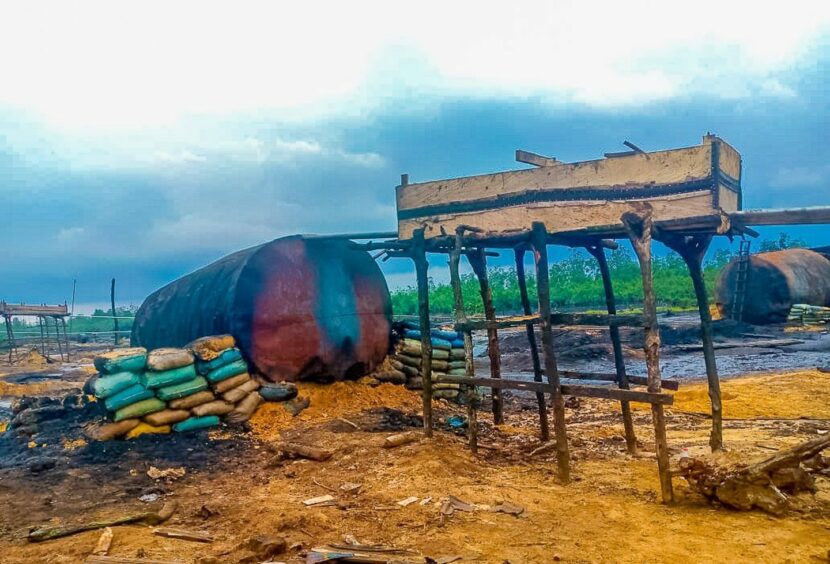
Oil bunkering in Nigeria is a more attractive industry than piracy, for now, but this may change in late 2023.
A report from the European Commission, by RUSI Europe, noted that piracy and kidnapping had decreased in the Gulf of Guinea since April 2021. However, it warned, “the threat has not disappeared and its resurgence is probable in the near future”.
Factors with an influence on this will be the result of the elections, due in February and March 2023, and the following rainy season.
The report authors said they were looking at October 2023 as a “turning point to observe a possible re-emergence of piracy during the next dry season”.
Interviewees told the report’s authors that pirate group members were now involved in oil bunkering. They also reported clear links between militants and illegal refining.
Return on investment
Citing interviews carried out with those involved, the report said oil bunkering offered “lesser risk and more reward” than piracy.
A failed pirate attack leaves a group indebted to the financial sponsor of the mission. Success in piracy has fallen in recent times, with sailors in the deep offshore proving harder to kidnap than in the past.
Bunkering, on the other hand, is more affordable. The most common model is theft from a pipeline, with stolen crude going to illicit refineries.
To build an illicit medium size crude refinery may cost 8-9 million naira ($18,000-20,000). Producing AGO and kerosene from such an installation can earn 5.25mn naira ($11,800) for a night of operations.
A number of countries have deployed navies to provide security in the Gulf of Guinea. The report struggled to draw a clear line between these deployments and the move away from piracy, but it did note that offshore security was not the entire answer.
This, it said, was only one symptom of the “disease that is very well rooted in the history of the Niger Delta agitations”. The solution to the criminality problem must involve onshore factors.
Nigerian production has dropped this year, as bunkering increases and producers shut in volumes. OPEC’s most recent statistics show production of just over 1 million barrels per day since the third quarter.
